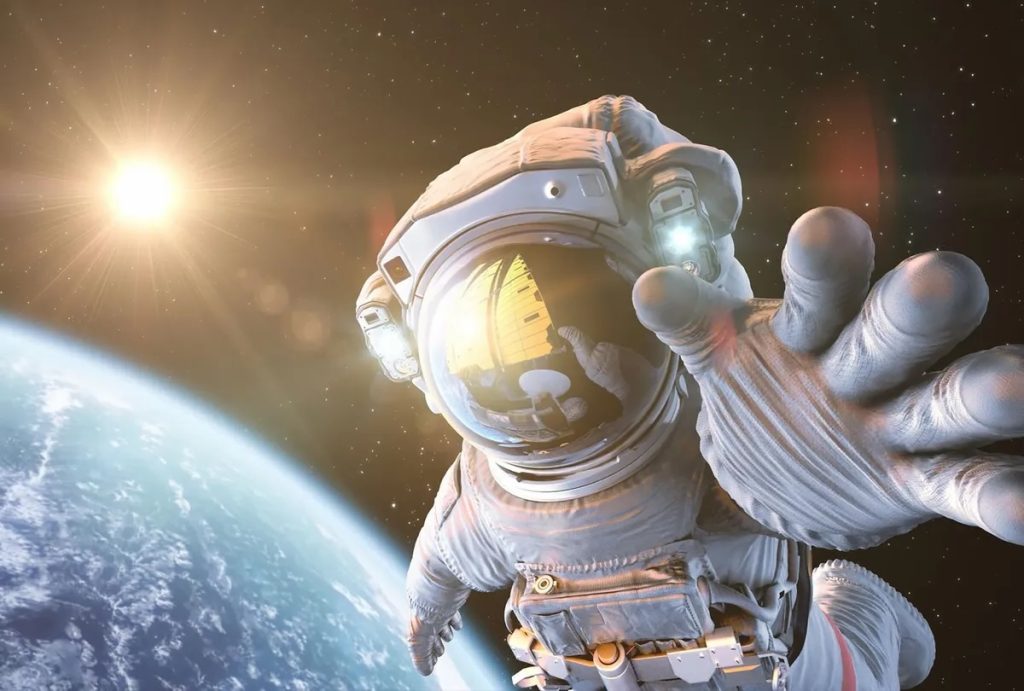National Astronaut Day ignites the imagination with tales of bravery, innovation, and the relentless human spirit to explore beyond our earthly confines. Celebrated on May 5, this day pays homage to the trailblazers who donned their spacesuits, strapped themselves into rockets, and ventured into the unknown. Astronauts, from the pioneering Mercury Seven to modern-day spacefarers, have expanded our understanding of the cosmos, facing unimaginable risks with courage and determination. Yuri Gagarin's historic orbit in 1961 and Alan Shepard's monumental journey just a month later set the stage for a new era of exploration. With each mission, whether it's stepping onto the moon, repairing the Hubble Telescope, or living aboard the International Space Station, astronauts demonstrate what humanity can achieve when curiosity meets courage. National Astronaut Day isn't just about looking back at these incredible achievements; it's a day to inspire future generations to dream big, reach for the stars, and ponder, what frontiers will we conquer next?
Key Takeaway
Timeline
Day Activities
-
Kick-off with a Blast: National Astronaut Day starts with educational programs aimed at inspiring the next generation of space explorers. Schools and museums often host interactive sessions where kids can learn about the physics of space travel, the life of an astronaut, and the historical milestones that have defined human space exploration. It's not just about the stars; it's about sparking curiosity and dreams.
-
Meet and Greet the Stars: On this day, several space agencies and observatories open their doors for public tours and Q&A sessions with real astronauts. Imagine shaking hands or snagging an autograph from someone who's actually been out of this world! These meet-and-greets are golden opportunities for space enthusiasts to ask their burning questions and hear firsthand stories of courage and discovery.
-
Stargazing Parties: As night falls, communities often come together for stargazing parties, where telescopes are pointed skyward, and everyone gets a chance to gaze at the wonders of the universe. These gatherings are not only about admiring the beauty of the cosmos but also about sharing a moment of collective awe and appreciation for the vastness that astronauts call their workplace.
Interesting Facts
1. First Celebration in 2011
National Astronaut Day was proposed by ex-NASA astronaut Leroy Chiao to honor space explorers' contributions.
2. Yuri Gagarin's Historic Orbit
On April 12, 1961, Yuri Gagarin became the first human to orbit Earth, marking a significant milestone in space history.
3. NASA's Formation
Established on October 1, 1958, NASA aimed to lead the U.S. in space exploration, responding to the Soviet Union's advances.
4. The Mercury Seven
In April 1959, the first American astronauts, known as the Mercury Seven, were selected, paving the way for future space missions.
5. A Day of Remembrance and Celebration
National Astronaut Day reminds us of astronauts' achievements and sacrifices, celebrating human curiosity and technological progress in space exploration.
Why We Love This Day
-
Celebrating Human Courage and Curiosity: National Astronaut Day isn't just any day; it's a tribute to the bold men and women who've strapped themselves into rockets, leaving Earth's atmosphere behind to explore the great unknown. Think about it: these astronauts embody the ultimate expression of human curiosity and bravery. They've ventured into space, facing unknown dangers, all to quench humanity's thirst for knowledge and discovery. This day reminds us of our innate desire to explore and understand the cosmos, making it a perfect reason to look up and dream big.
-
Honoring Pioneering Achievements in Space Exploration: On this day, we don't just tip our hats to the astronauts; we're also celebrating the monumental strides in space exploration. From Yuri Gagarin's historic orbit around Earth to the countless missions that followed, each step has been a leap toward understanding our place in the universe. These achievements have not only expanded our knowledge but have also fostered international collaborations, proving that when it comes to exploring the vastness of space, we're better together. It's a day to reflect on how far we've come and to get excited about the future possibilities that lie beyond our planet.
-
Inspiring the Next Generation of Explorers: Let's face it, astronauts are rock stars in the realm of science and exploration. National Astronaut Day serves as a powerful inspiration for kids (and adults!) everywhere, sparking dreams of becoming the next heroes in space. Through educational programs and public events, this day shines a spotlight on the importance of STEM (Science, Technology, Engineering, and Mathematics) education, encouraging young minds to pursue careers that could one day take them to the stars. It's a day about looking forward, filled with hope and excitement for what the next generation of explorers will achieve.
Past & Future Dates
| Month | Day | Year |
|---|---|---|
| MAY | 5 | 2022 |
| MAY | 5 | 2023 |
| MAY | 5 | 2024 |
| MAY | 5 | 2025 |
| MAY | 5 | 2026 |
| MAY | 5 | 2027 |
| MAY | 5 | 2028 |
FAQ
Why do we celebrate National Astronaut Day?
In 2016, Balliro envisioned an opportunity to create a wellspring of astronaut recognition by launching National Astronaut Day. This special occasion is now observed every May 5 in salute to Mercury astronaut Alan Shepard's historic first spaceflight aboard Freedom 7 on May 5, 1961.
What national day is on May 5?
NATIONAL SILENCE THE SHAME DAY – May 5.
What happened on May 5 1961 in the space race?
On May 5, 1961, Alan Shepard became the first American to go into space, in a mission that lasted just over 15 minutes.
Is today National astronauts Day?
May 5th, National Astronaut Day— the anniversary of Alan Shepard's first flight to space, the first for any American 🇺🇸.
